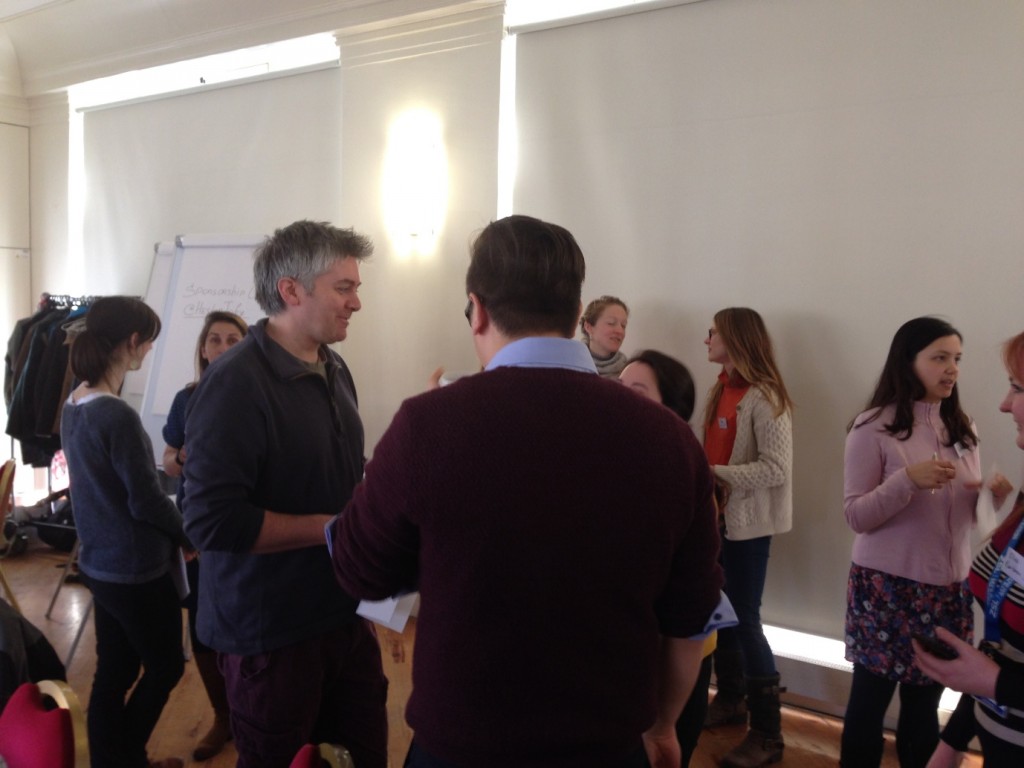“Who enjoys networking?” Silence.
And then we all hear the news: our first task is a game, which consists in spending 20 minutes networking our very hardest. The rule is simple: the winner of the ‘competition’ is the person whose name is written down most by members of the group for being a useful connection, e.g. could offer them career advice, suggest a useful publication to slot into their thesis or draw to their attention a potentially invaluable peatland vegetation identification key (albeit in Finnish – yes, wonderfully niche!).

Ben Connor (BES Policy Officer) spent the first half of the session imparting wisdom on the finer skills of networking (some of which covered here and here). These included:
- Remember that everyone is human, everyone has been in your position (dreading networking as an awkward early career drifter) and everyone has had to work their way to greater knowledge and experience somehow;
- The ultimate networking success is when both parties gain from the interaction: try to embody the “you-rub-my-back-I’ll-rub-yours” saying;
- In a busy conference setting, it may be more effective to pre-plan a meeting with your hero to ensure it does actually happen before they sneak off, but if there is nothing specific you want to ask someone in particular, following your interests and instincts on the day (wine glass in hand) may yield equal or even more interesting results;
- The art of politely ending a conversation that isn’t coming up with the goods in your limited time-frame is just that: an art; and thus,
- Practice makes perfect.
The second half of the session (to our relief!) focused on critiquing CVs and matching them to job descriptions. Elina Rantanen (ZSL Publications Team) led us through this activity, where we were given various hypothetical people’s CVs and a pile of job applications, and asked to match them up. This proved a very interesting exercise in seeing which CVs were more appealing to us, based on layout, content, brevity, etc.. We discussed the relatively new fashion in CVs of including a brief profile at the start, which gives a c. five line introduction to your education and experience for the role that you are applying for; something of a short narrative on you. Other things to consider when constructing your CV are:
- How can you tailor it to the job you are applying for? For example, for a research position, list your University education/academic background and publications towards the start;
- What detail is needed for this job application? Perhaps you don’t need to include your 50m swimming badge for a desk-based policy job;
- How can you redesign your academic CV for a non-academic job application?
We left the session with new knowledge on the tricks of the networking trade, ideas for how to appropriately revamp our CVs (interesting tips can also be found here, here, and here) and even some ideas about the range of potential jobs we could apply for (starting by regularly visiting websites such as this one, this one or this one). So next time, take a risk and start a conversation, as you never know what doors it might open! It might even help you to queue jump the lunch queue, unnoticed.
Here are Ben’s three key take-home messages from this session. You may also want to watch the BES webinar on “How to plan your career”, including presentations on CV building, moving from PhD to postdoc and finding careers outside of academia.
This blog is part of a series of posts from the BES/ZSL Conservation Careers Workshop, also posted on The Applied Ecologists blog and the ZSL Wild Science blog. Find out more.
Like what we stand for?
Support our mission and help develop the next generation of ecologists by donating to the British Ecological Society.